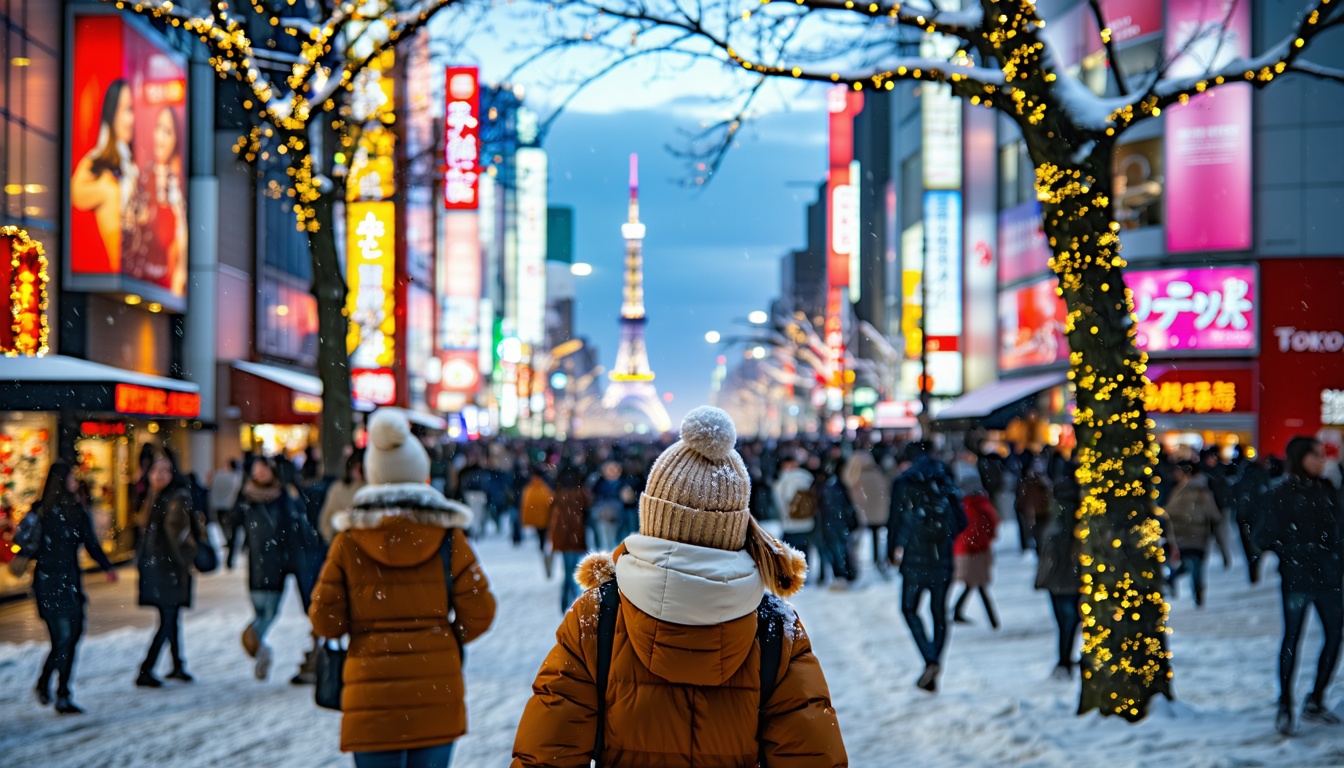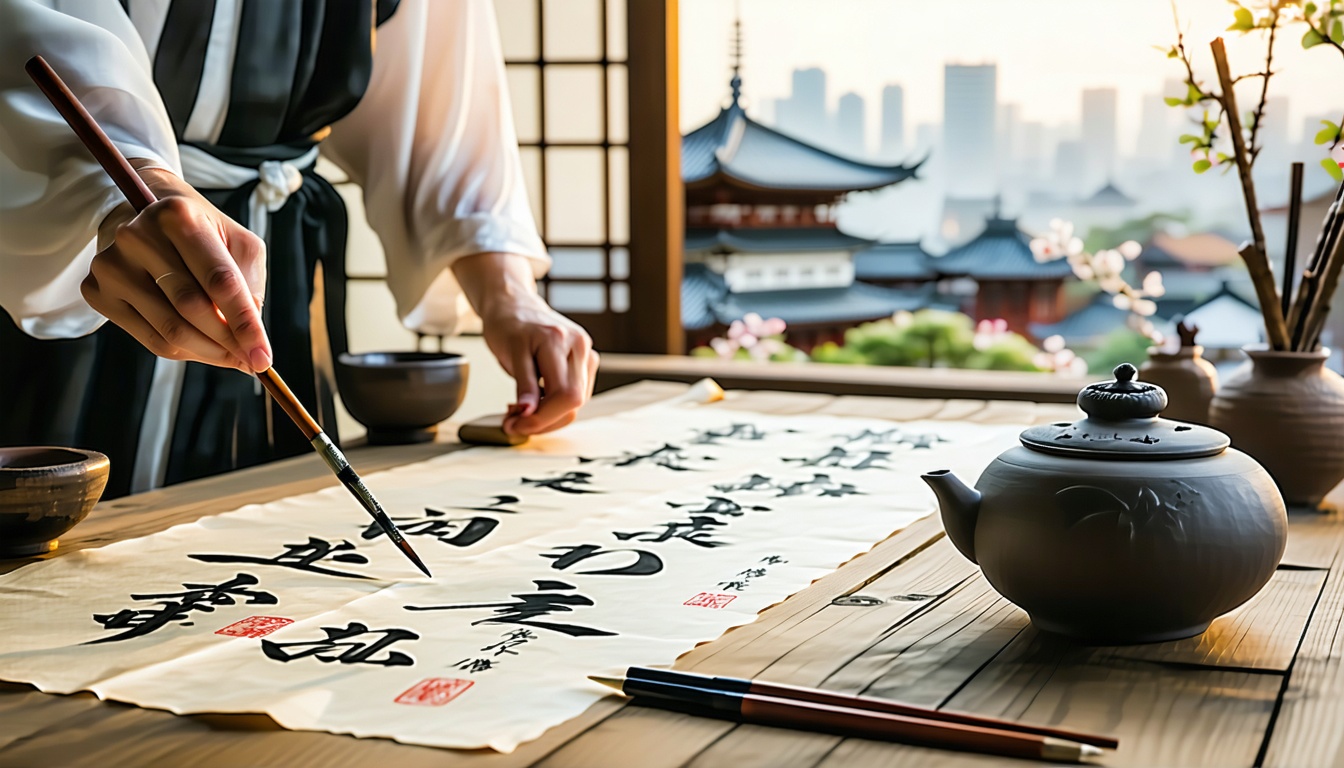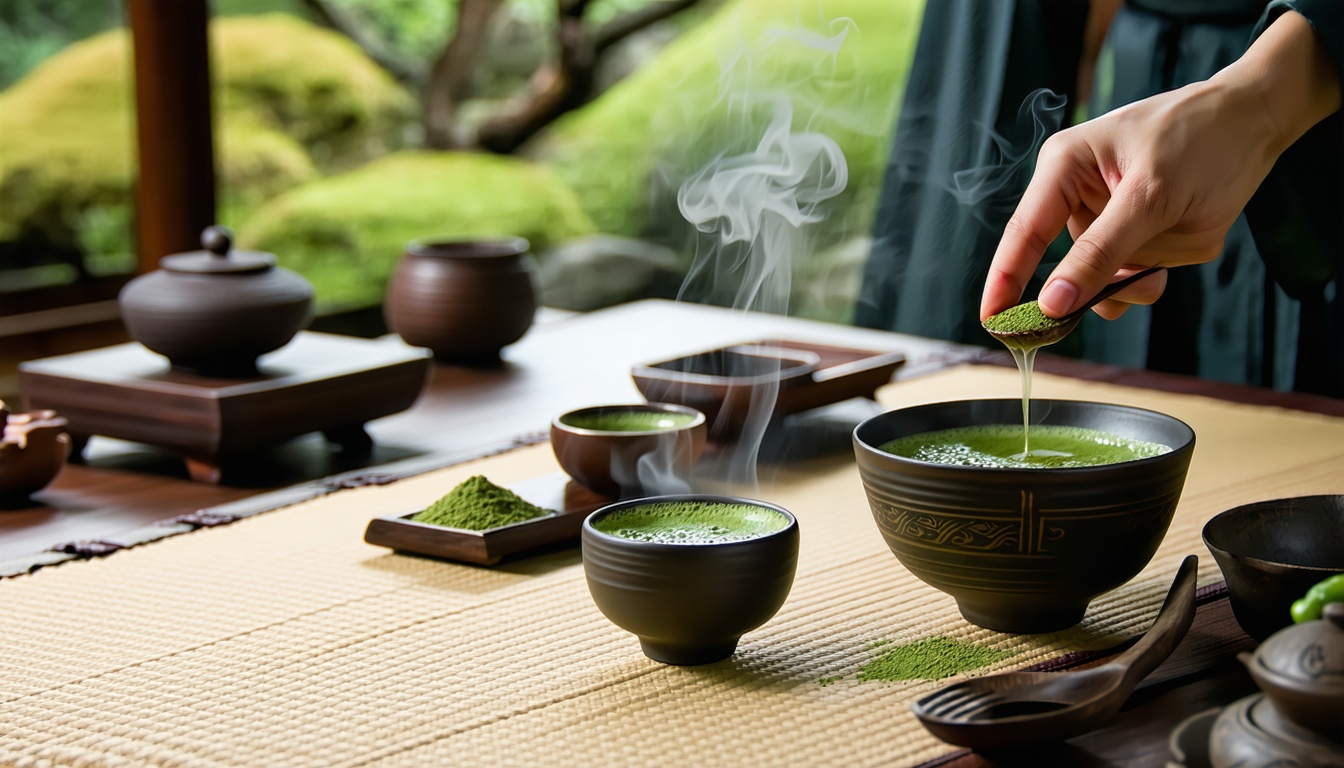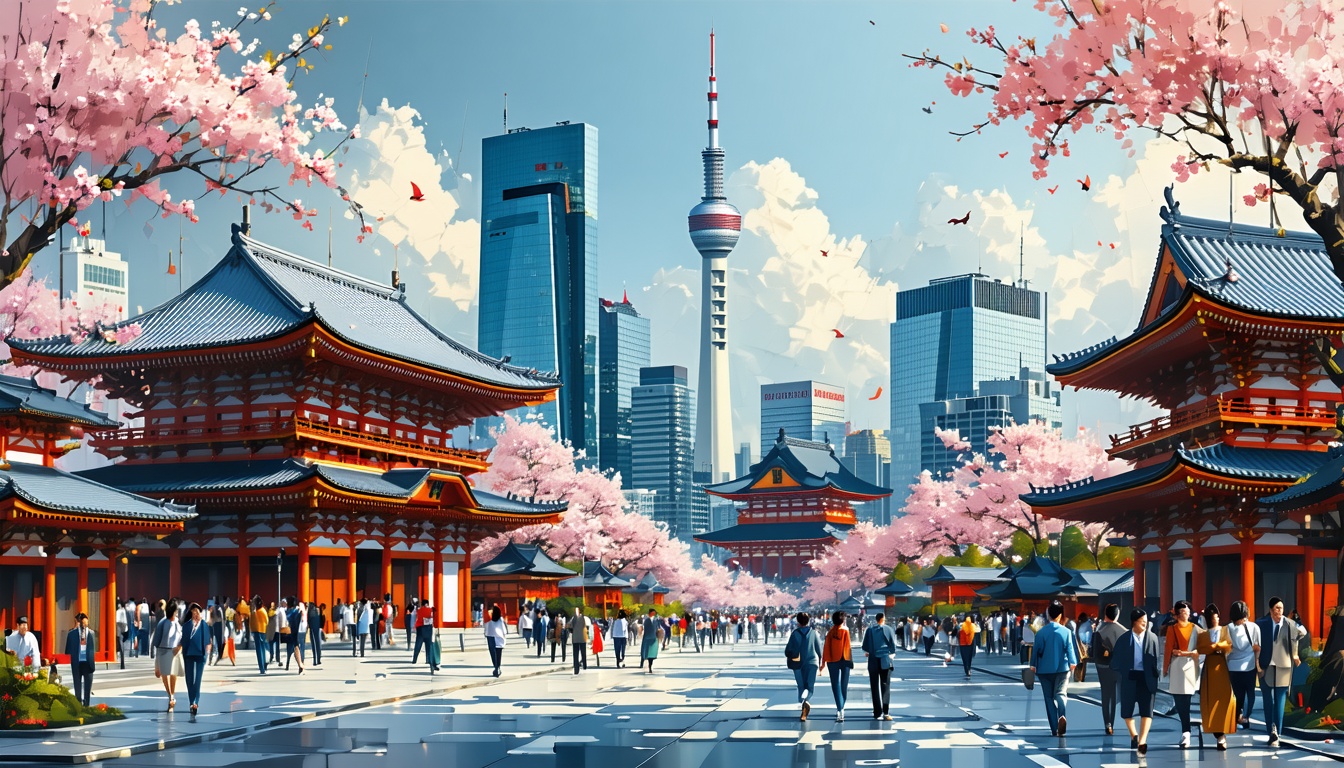Get Ready for the Spectacular Tokyo Winter Illuminations!

Tokyo winter illuminations light up the city in a magical, festive glow you won’t forget. From golden trees near Tokyo Station to tunnels of blue lights in Shibuya, these seasonal displays turn chilly nights into sparkling wonderlands. In this ultimate guide you’ll find the best spots, planning tips, photo tricks, and insider advice to make your winter trip shine.
By the end you’ll know where to go, when to visit, and how to capture the perfect shot. Let’s dive into the vibrant world of Tokyo’s winter illuminations.
Enjoy winter lights
Tokyo’s winter light festivals offer more than eye candy, they create an immersive mood you feel as soon as you step outside. Here’s why you’ll fall in love.
Festive wonder
Walking under rows of champagne-gold LEDs near Tokyo Station feels like stepping into a fairytale. The soft glow creates a cozy atmosphere and sparks that holiday feeling in even the biggest cynics.
Cultural sparkle
Illuminations blend modern tech with traditional motifs. You’ll see classic Japanese patterns projected onto trees and pathways, a subtle nod to seasonal customs and local artistry.
Photo magic
Bright displays, reflective puddles, and dark skies make for dramatic shots. Whether you’re using a DSLR or your phone, these scenes practically beg for a snapshot you’ll want to share.
Explore must-see events
Tokyo has dozens of illumination events running from mid-November through February, and a few stretch into spring. Here’s a quick reference before we dive into details.
Event Location Dates Lights count Highlights
Marunouchi illumination Marunouchi district Nov 14, 2024–Feb 16, 2025 820,000 LEDs Champagne-gold trees powered by solar and wind (Go Tokyo)
Roppongi Hills illumination Keyakizaka Street, Roppongi Nov 7–Dec 25, 2024 800,000 LEDs Blue and white tunnel with Christmas market (Arigato Travel)
Tokyo Midtown illumination Midtown Garden mid-November–late December 2024 ~560,000 LEDs Ensemble Lights, Promenade of Lights, market (Go Tokyo)
Yomiuriland Jewellumination Yomiuriland (western Tokyo) mid-Oct 2024–Apr 6, 2025 ~4 million LEDs Gemstone color palettes on coasters and fountains (Jobs in Japan)
Tokyo Dome City winter illumination Tokyo Dome City complex dates vary yearly (winter)
600,000 LEDs Snow Dome theme, giant Christmas tree (Rakuten Travel)
Tokyo Mega Illumi Oi Racecourse, Shinagawa Nov 2, 2024–Jan 12, 2025 millions Horse-themed tunnels, water fountain shows (gltjp.com)
Meguro River Minna no Illumination Meguro River, Osaki–Gotanda Nov – Feb 350,000 LEDs 2.2 km of cherry blossom–colored lights (gltjp.com)
Blue Cave (Ao No Dokotsu) Shibuya to Yoyogi Park Dec 6–25, 2024 tens of thousands Enchanting blue tunnel (Jobs in Japan)
Marunouchi illumination
Head to the Marunouchi area just outside Tokyo Station to see about 286 trees wrapped in 820,000 champagne-gold LEDs. This display runs from mid-November through mid-February, and all the power comes from solar and wind energy. It’s free, family-friendly, and a prime spot for that postcard shot.
Roppongi Hills illumination
Keyakizaka Street turns into a blue and white tunnel synced to music. You’ll find a charming Christmas market with European-style treats nearby. The lights are on from early November until Christmas Day, so plan a weekday visit to avoid crowds.
Tokyo Midtown illumination
This event features roughly 560,000 lights across Midtown Garden. Don’t miss the “Ensemble Lights” that tell a snowy story through projections, or the Promenade of Lights that guides you past sparkling trees. A Christmas market returns after a five-year break—perfect for a mulled wine pit stop.
Yomiuriland Jewellumination
About 30 minutes from central Tokyo, Yomiuriland hosts one of the world’s largest light festivals. Jewel-colored LEDs cover roller coasters, fountains, and pathways. It runs from mid-October into April, so you can catch it even if you visit after the holidays.
Tokyo Dome City winter illumination
Tokyo Dome City transforms into a snowy playground with over 600,000 LED lights. Ride the attractions, shop the stores, and warm up under the giant illuminated Christmas tree. Themes change each year, so you’ll always find something fresh.
Tokyo Mega Illumi
At the Oi Racecourse in Shinagawa, you’ll see vivid tunnels, animated horse sculptures, and water fountain shows. This event has topped visitor rankings three years in a row, running from early November to mid-January on non-race days.
Meguro River Minna no Illumination
Stroll 2.2 km of riverside paths lit by 350,000 pink and white LEDs from November through February. You’ll cross under glowing arches, making for an unforgettable romantic or solo walk.
Blue Cave (Ao No Dokotsu)
In Shibuya, this blue tunnel leads you toward Yoyogi Park. The deep sapphire hue provides a surreal backdrop for photos. It runs December 6–25, so mark your calendar early.
Plot your itinerary
Covering Tokyo’s sprawl can feel daunting. Here’s how to organize your nights for maximum sparkle.
Group by neighborhood
-
Tokyo Station area: Marunouchi illumination, Imperial Palace winter lights
-
Roppongi: Roppongi Hills illumination, Mohri Garden lights
-
Midtown: Tokyo Midtown illumination, Midtown Christmas market
-
Western Tokyo: Yomiuriland Jewellumination
-
Shibuya/Shinjuku: Blue Cave, Meguro River Illumination
Use efficient transport
Grab a Pasmo or Suica card at the airport for seamless metro and train rides. To hit multiple spots in one evening, plan a loop using the Yamanote Line and connecting metro lines. For longer trips to Yomiuriland, factor in 30–40 minutes on the Odakyu Line.
Pick the right timing
Knowing when and when not to go makes all the difference between a comfy stroll and a crowded rush.
Understand the season
Most displays kick off in mid-November and run through late December or mid-February. A few like Yomiuriland spill into spring (Japan Guide). Plan around your other winter activities by checking dates in advance.
Avoid peak crowds
Weekends and holidays draw big crowds from around Japan. If you can swing a weekday visit, you’ll enjoy shorter lines and better photo angles. The first hour after dusk (around 5–6 pm) is prime time before buses of visitors arrive.
Check the weather
Tokyo winters are mild, rarely dipping below freezing, but wind can make it feel colder. Layer up with a warm coat, scarf, gloves, and waterproof boots. For more packing advice, see our guide to Tokyo seasonal clothing.
Capture stunning photos
These displays practically beg for photos, but a few simple tricks will take your shots from nice to wow.
Gear essentials
-
Tripod or stable surface for long exposures
-
Low-light lens (f/1.8 or faster) if you have a camera
-
Extra batteries, they drain faster in cold weather
Composition tips
-
Look for reflections in puddles or glass surfaces
-
Frame lights with trees or architecture for context
-
Use leading lines like pathways to draw the eye
Smartphone hacks
-
Night mode or pro mode to adjust exposure
-
Tap to focus on the brightest lights, then lock
-
Use a small portable tripod or rest your phone on a ledge
Warm up nearby
After an evening under the lights, you’ll want something to keep you cozy and festive.
Holiday markets
Many illumination sites host Christmas markets. Sip mulled wine, nibble on bratwurst, or try festive crepes near Roppongi Hills and Tokyo Midtown.
Cafés and onsen
Warm up in a themed café or slip into an urban onsen. For a traditional twist, head to an outdoor hot spring in western Tokyo after visiting Yomiuriland.
Indoor festivals
Combine your light quest with a visit to nearby museums or indoor cultural events like Tokyo Christmas events and Tokyo new year celebrations.
Manage your budget
You don’t have to splurge to enjoy the glow. Here’s where to save and where to spend.
Free versus ticketed
-
Free events: Marunouchi, Roppongi Hills, Meguro River
-
Paid events: Yomiuriland (park admission), Tokyo Mega Illumi, Tokyo Dome City (ride fees)
Transportation costs
A one-way metro ride is 170–330 yen. With a Pasmo or Suica card, tapping in and out makes transfers painless. Budget around 1,000 yen per day for unlimited short hops.
Accommodation tips
Staying near a Yamanote Line station (Shinjuku, Shibuya, Tokyo Station) saves time and transport costs. Book early—prices rise around Christmas and New Year.
Stay safe and comfy
Bright lights and crowds are fun, but a little prep goes a long way.
Layer and gear up
Cold weather plus wind means you’ll feel chillier than temps suggest. Wear moisture-wicking base layers, a warm mid-layer, and a windproof outer.
Navigate crowds
Keep your phone, wallet, and camera secure. A small crossbody bag works better than a backpack in tight spaces. If you’re in a group, pick a clear meeting spot in case you get separated.
Check real-time updates
Follow event Twitter or Instagram feeds for last-minute changes due to weather. Some displays may close early in heavy rain or strong winds.
Frequently asked questions
What dates do Tokyo winter illuminations run? Most begin in mid-November and wrap up between late December and mid-February, though a few run into spring.
Are there free illumination events? Yes, Marunouchi illumination, Roppongi Hills illumination, and Meguro River Illumination are all free to enjoy.
How do I get to Yomiuriland Jewellumination? Take the Odakyu Line from Shinjuku to Yomiuri-land Station, then hop on the shuttle bus to the park entrance.
Can I photograph the lights with a smartphone? Absolutely. Use night or pro mode, a steady surface or mini-tripod, and adjust focus on bright spots.
What should I wear for an evening of illuminations? Dress in layers with a warm coat, scarf, gloves, and comfortable waterproof shoes to stay cozy while you explore.


